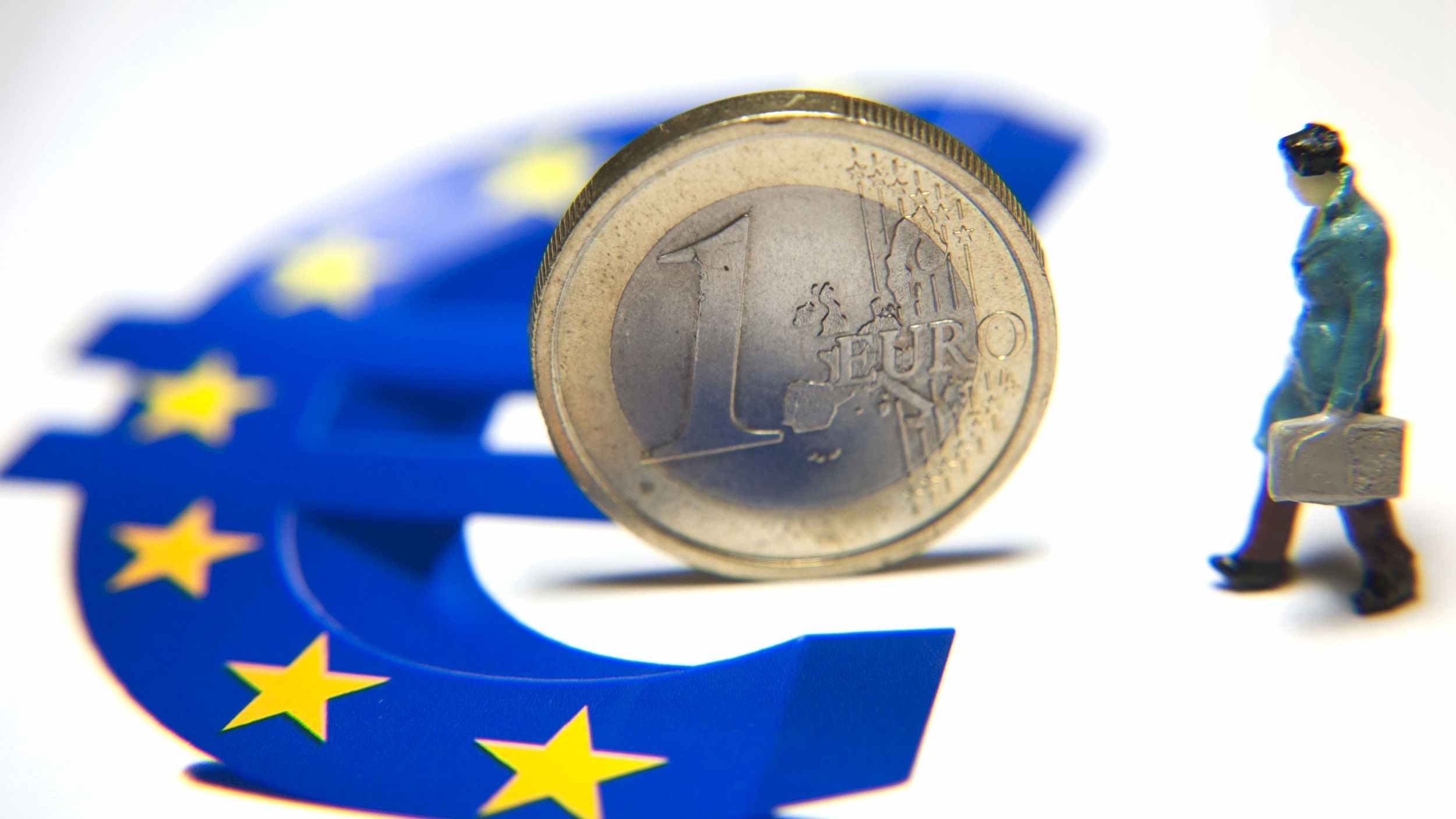
Business
18:02, 25-Oct-2018
Euro zone bond yields lower in risk-off markets, before ECB
Updated
17:39, 28-Oct-2018
CGTN

Euro zone government bond yields fell on Thursday as a global equity sell-off fueled a dash for debt and investors awaited a meeting of the European Central Bank (ECB).
The ECB is expected to keep policy unchanged, but it meets at a time when markets are blighted by doubts about economic growth, a spat between Rome and Brussels over Italy's budget and big declines on Wall Street.
The equity worries drove US Treasury yields to their lowest since early October. A risk-off mood is supporting the prices of "safe" bonds and driving down yields.
The ECB is likely to be concerned by this week's purchasing managers' data, that showed growth in the euro zone lost more momentum than expected, pointing to the slowest quarterly growth in more than two years.
Analysts expect the ECB to acknowledge a worsening growth outlook, but do not expect the global concerns to derail its planned retreat from monetary stimulus.
The ECB is widely expected to end its asset purchase program this year, though there is little detail on its planned reinvestment strategy. "On the QE reinvestment strategy for 2019, the first hints that it was at least discussed should be expected – full clarity will likely come in December," ING analysts wrote in a note to clients on Thursday.
European money markets, meanwhile, have pushed back expectations of a rate increase until October 2019. Until last week, they priced in a hike for next September.
Money markets now suggest around a 68 percent chance of a ten-bps-ECB-rate-hike in September 2019. Expectations for September 2019 had briefly dipped to 60 percent.
Analysts will want to hear ECB president Mario Draghi's thoughts on core inflation in the euro zone after referring to a "vigorous" pick-up in core inflation at the September meeting.
The five-year forward, a long-term gauge of inflation expectations in the euro zone, is at its lowest point since May 29, standing at 1.67 percent and inching away from the ECB's target of close to but below two percent.
Germany's 10-year government bond yield, the benchmark for the region, hovered around 0.388 percent, a six-week low and down for the third straight day.
Ten-year French and Dutch bond yields were flat to two basis points lower in early trade.
Italian bond yields also fell six to seven bps across the curve, after Deputy Prime Minister Luigi Di Maio reiterated that Rome did not want to exit the euro, although he said Italy's 2019 budget deficit target of 2.4 percent should not be trimmed.
The Italy/Germany bond yield spread touched a one-week high of 323 bps, its second widest since 2013, but later eased to narrowed to 318 bps.
Source(s): Reuters

SITEMAP
Copyright © 2018 CGTN. Beijing ICP prepared NO.16065310-3
Copyright © 2018 CGTN. Beijing ICP prepared NO.16065310-3